Scrapping settlements and tidying up after the apocalypse in Fallout 4
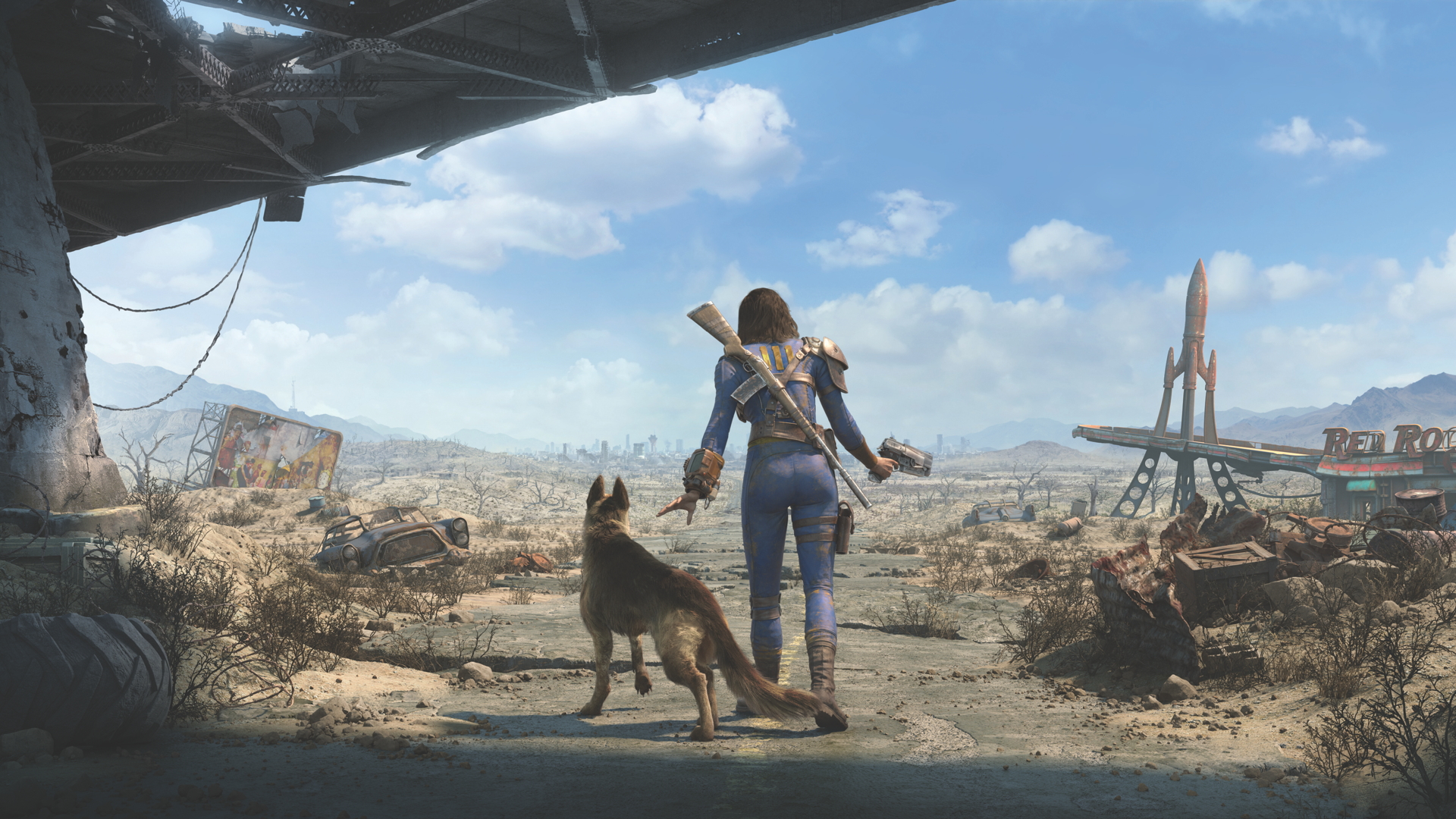
You know how it is. You’re running away from a suicidal super mutant down the remains of a pre-war road, and you have to weave your way around continual obstacles: a ruined car, a pile of rubble, a fallen tree. You enter the old factory or hospital in which this gang of mutants has settled, and there’s broken furniture and bags of body bits all over the place. Fallout 4’s Commonwealth is many things, but primarily it’s a mess.
Of course, the same is true for the Capital Wasteland in Fallout 3, and it makes sense. There are so many dangers lurking around every corner people don’t have time to make their surroundings more attractive, and in the two centuries since the bombs fell a lot of junk has accumulated. You have to deal with it.
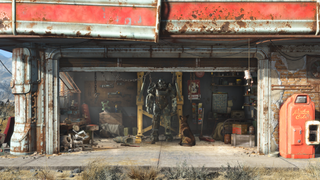
But sometimes you stumble across a prime location, such as an old village or farm or island, and discover a workshop. This means the area can become a settlement, a small section of the map where elaborate shelters can be constructed for survivors. But first comes my favourite part: tidying up.
On a first visit, many settlements are just as messy as the rest of the map. Take Sanctuary, for instance, the suburb where your player character lived before being cryogenically frozen in Vault 111. The houses are dilapidated, some still standing but full of holes; others have collapsed. Driveways are populated with rusted vehicles, rooms full of broken beds, baths and beyond. The paths have survived but they’re blocked by fallen trees and street lights. It’s chaos.
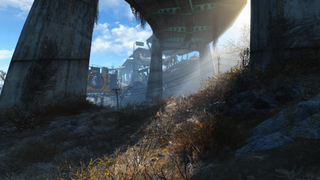
Thank goodness for the scrap button. In every settlement, some structures are fundamental: a few foundations or roads, or particularly large trees. But everything else can be destroyed and broken down into parts, with just the press (well, two presses) of a button. Just enter Workshop mode, point your cursor towards the offending item until it’s highlighted in yellow and press X to scrap it. A little menu will pop up to show exactly which raw ingredients (wood, steel, rubber, etc) you can gain, and the entire item will vanish with an incredibly satisfying sound when you press X again.
You can apply this tool to a wide range of targets, from toasters to cars to – as in the case of Sanctuary – entire buildings. I like to imagine the effort required in a real-world equivalent, with swarms of settlers hurrying in to cart an object off and somehow break it down into sheets of scrap metal or planks of wood.
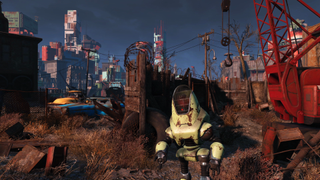
Some things cannot be scrapped, including – annoyingly – corpses. Every now and then you get a call to defend one of your settlements, and inevitably the conflict ends with the bodies of the fallen draped across your nicely arranged accommodations. In my game, inhabitants of Murkwater Construction Site live in a house built on stilts above the giant corpse of a Mirelurk queen.
Sign up to the 12DOVE Newsletter
Weekly digests, tales from the communities you love, and more
Sometimes I choose not to scrap everything because I’m motivated by aesthetics and I like the image evoked by some objects even if they’re technically useless. I always leave the bathtubs, for example, even though ceramic is relatively rare and useful for building things like water pumps, because I like the idea of my settlers using them.
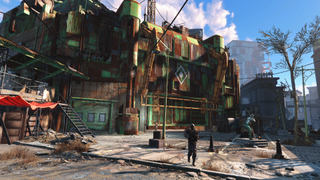
Besides, I’m not really scrapping things for the ingredients, which I can buy from traders or scavenging stations, and share between my settlements through supply lines. I do it for the feeling of cleaning up, which is what so many video games are really about, from clearing rows in Tetris to eliminating enemies in a shooter. Building settlements is enjoyable, but the magnitude of the task gives it a stressful edge. Cleaning up is much more fun.
Methodically scrapping objects in Fallout 4 is one of those in-game actions so satisfying that the desire trickles over into the real world. But instead of seeing Tetris blocks whenever I close my eyes, I see collections of raw materials when I look at an untidy room. If only I could clean up my own life as easily and enjoyably as I can clean up an imaginary post-apocalyptic wasteland.
This article originally appeared in Xbox: The Official Magazine. For more great Xbox coverage, you can subscribe here.
Jordan Erica Webber is a talented freelance journalist with bylines on sites like 12DOVE and The Guardian, but there's a good chance you'll recognize her name from elsewhere. Jordan is the resident gaming expert on Channel 5's The Gadget Show, an arts and culture presenter for BBC Radio 4, and co-wrote an excellent book entitled 'Ten Things Video Games Can Teach Us (about life, philosophy and everything)'.
Most Popular


